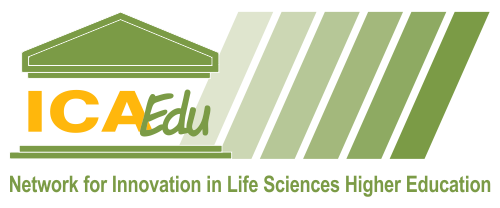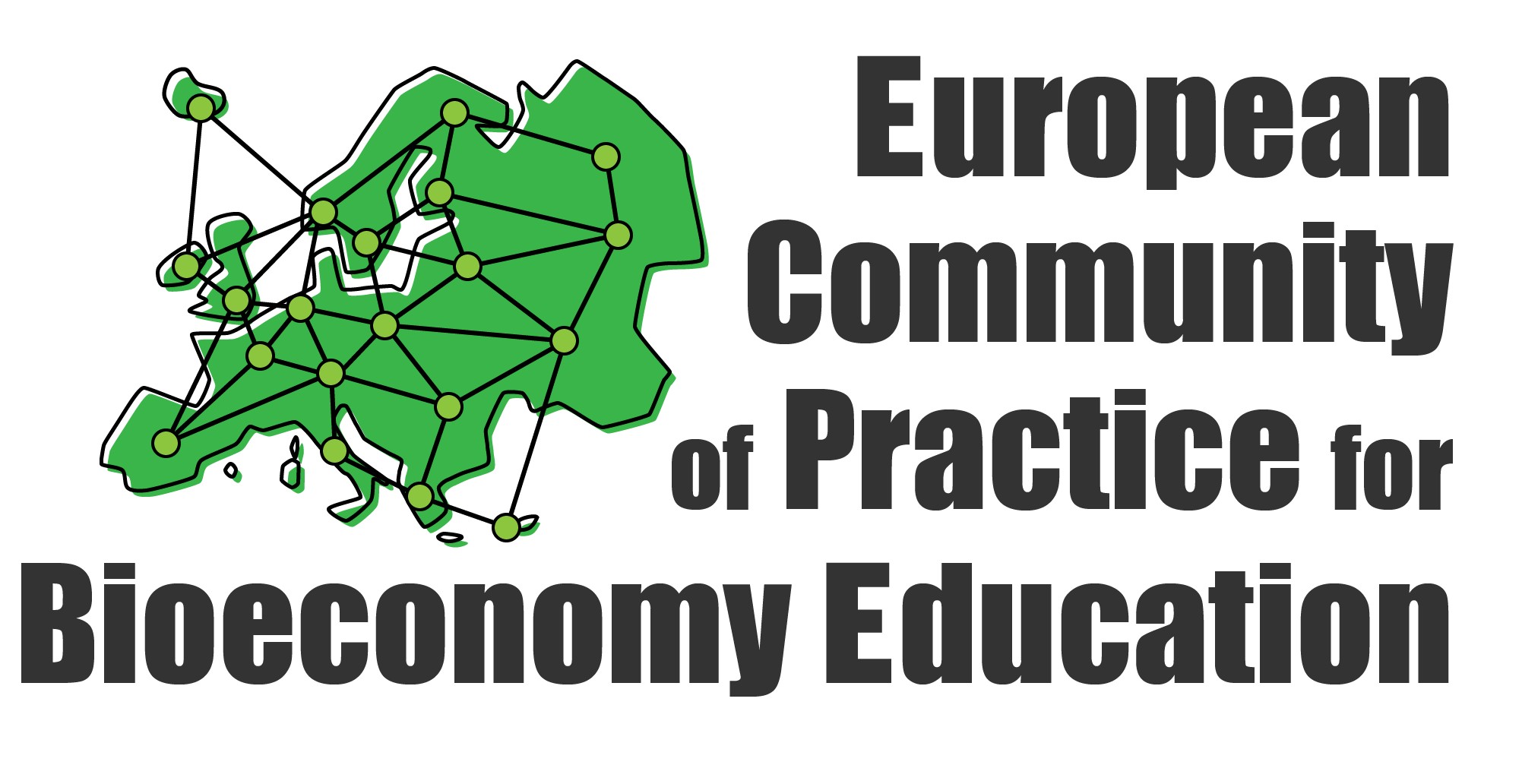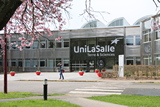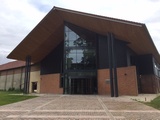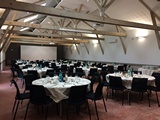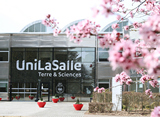Association for European Life Science Universities (ICA)
Bending the Curve for Biodiversity: challenges and opportunities for life science universities
&
Life science universities addressing
Knowledge Security
was held on Thursday 20 and Friday 21 October 2022
at the Vytautas Magnus University Agriculture Academy, Lithuania
Download the Forum flyer and see the keynote Presentations here
The goal of the ICA's Rectors and Deans Forums
This annual ICA Forum for Rectors, Deans and senior management of agricultural and life science universities in Europe aims to provide these university decision makers from ICA's member universities with the opportunity to meet, to discuss current issues in the agricultural and life sciences and to exchange views on issues with relevant stakeholders in industry, government and NGOs.
This Forum will address two themes as outlined in paragraph A. On Thursday “Bending the Curve for Biodiversity” and on Friday morning “Knowledge Security”.
A Forum Foci
1 Bending the curve for Biodiversity
Biodiversity loss is increasingly recognized as one of the most pressing challenges of our times as it threatens our own survival. In the words of Philipp Blom at the recent BOKU Featuring Future Conference 2022: we all live in a thin membrane encircling the globe and in that thin membrane all the species including us humans are interdependent.
Biodiversity is one part of the triangulation of challenges facing humanity, the other challenges being to feed an ever increasing world population and to achieve climate neutrality by 2050. The urgency to address the biodiversity crisis is increasingly visible on the global environmental agenda and the Intergovernmental Science-Policy Platform on Biodiversity and Ecosystem Services (IPBES) plays a major role in articulating this.
The authors of the Nature paper (Leclère D, Obersteiner M, et alia. 2020. Nature 585, 551) stress the need for an integrated strategy to bend the curve of terrestrial biodiversity decline and to reverse the global terrestrial biodiversity decline.
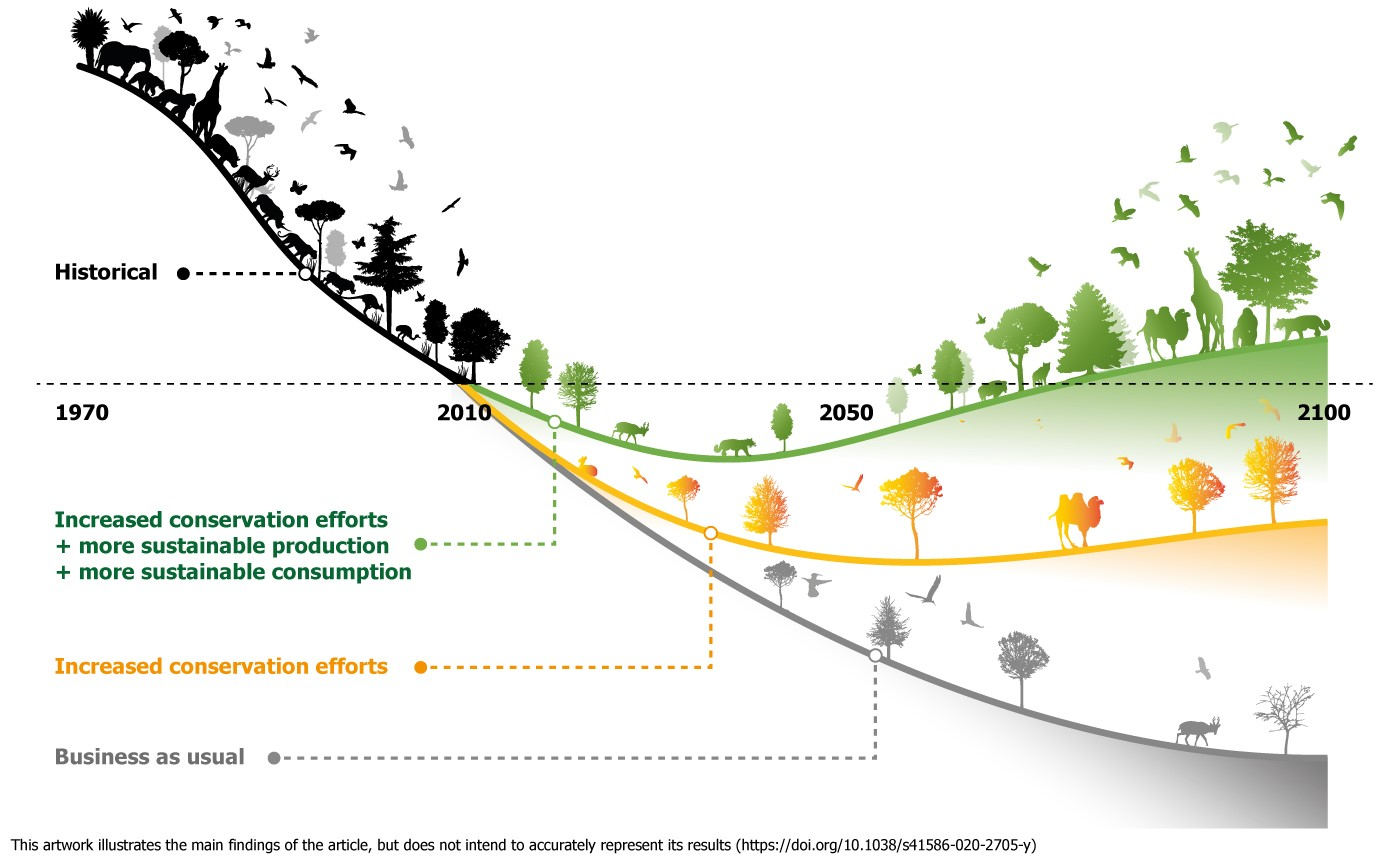
The IPBES and the Intergovernmental Panel on Climate Change (IPPC) in their joint Workshop Report Biodiversity and Climate Change (2021) recognise that climate change and biodiversity loss are interconnected in both scientific and policy-making circles, but in practice they are largely addressed separately. The report suggests that the research community dedicated to investigating the climate system is somewhat, but not completely, distinct from that which studies biodiversity. It stresses the need for biodiversity loss and climate change to be dealt together if the global climate and environmental ambitions are to be achieved.
The EU Biodiversity Strategy for 2030, published in 2020, aims to “bring nature back into our lives”. It picks up on one strand of the European Green Deal – protecting nature. The achievements of the strategy’s ambitions are linked in part to the EU Farm to Fork Strategy (another strand of the European Green Deal). The EU Biodiversity Strategy focuses on nature-based solutions to protect and restore nature. The need being to focus on developing land and water use systems so as to bend the curve against further biodiversity loss.
The Forum will address these challenges and discuss how life science universities can and do develop their education, research and innovation programmes and their engagement with society to contribute to the achievement of the EU Biodiversity Strategy and the wider global agenda as formulated by the IPBES and the IPCC.
2 Addressing Knowledge Security
Science has always been based on the idea and ideal of free exchange of information, results, scientists and students. Only by freely exchanging scientific ideas, the results of scientific research and scientists are we able to make progress in scientific understanding of the social and natural world; and hence to contribute to a better global society and planet. The European and global movement of Open Access publication, Open educational resources and FAIR data (as discussed during the ICA Forum 2021) pays tribute to that.
However, increasingly life sciences (and all) universities are confronted with developments and risks that endanger the idea of free exchange of science, research and scientists/students: Economic espionage (by private or state actors), dual use of university knowledge and technologies, cyber-attacks by criminals, unwanted influence of students and researchers, unethical and inappropriate use of research results, and foreign interference can no longer be ignored by (life science) universities. Hence there is a growing call by the media, by state authorities and the EU, by private-stakeholders, by university supervisory bodies as well as by scientists to develop activities and programs for what can be labelled “knowledge security”. This can conflict with university’s ideal of free exchange of information, research results and scientists. How to cope with that?
This Friday morning session will explore the security risks faced and experience of life science universities. We will discuss programs and activities that have been developed by ICA members to handle these risks and outlooks towards the future.
B Expected outcomes
The delegates will take back to their universities their reflections on
- the knowledge-based evidence that is needed to make effective and inclusive decisions for the conservation and sustainable use of biodiversity;
- the approach to educating their students that will empower them as our future leaders to address and act to protect and enhance biodiversity.
- Possible strategies and actions by life science universities to address knowledge security challenges.
C Target Audience
The forum is primarily aimed at Rectors, Presidents, Deans and Senior Management in agricultural and life science Universities. In addition, academic/faculty staff and degree programme coordinators are encouraged to participate.
D Forum Organising Committee
Antanas Maziliauskas, Agriculture Academy, Vytautas Magnus University, LT; Julian Park, University of Reading, UK; Arthur Mol, President of ICA & Wageningen University and Research (WUR) NL; and Simon Heath, ICA Deputy Secretary General
Download the Forum flyer
and see the keynote Presentations here

